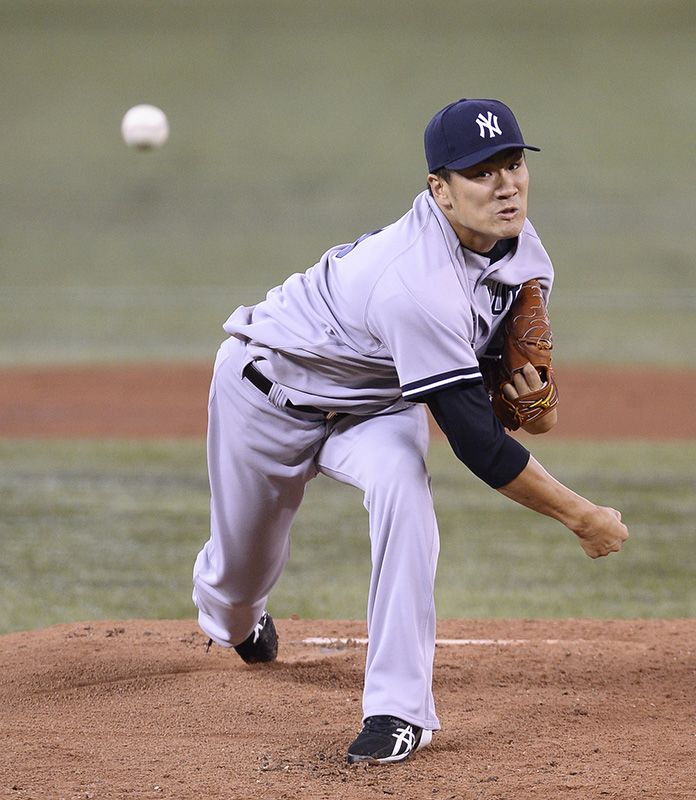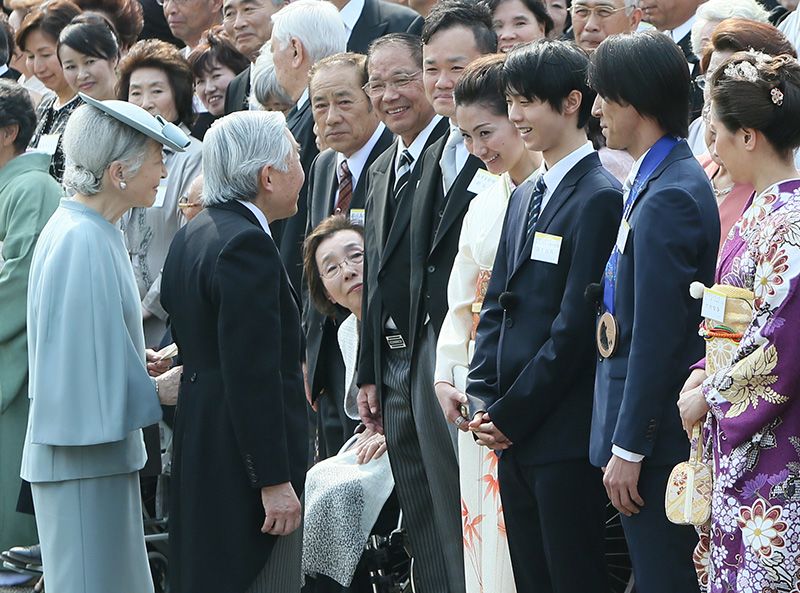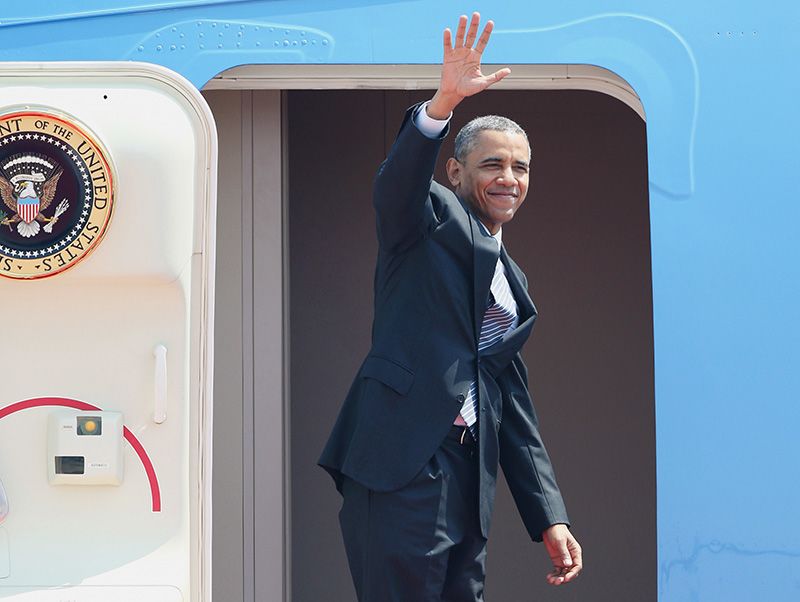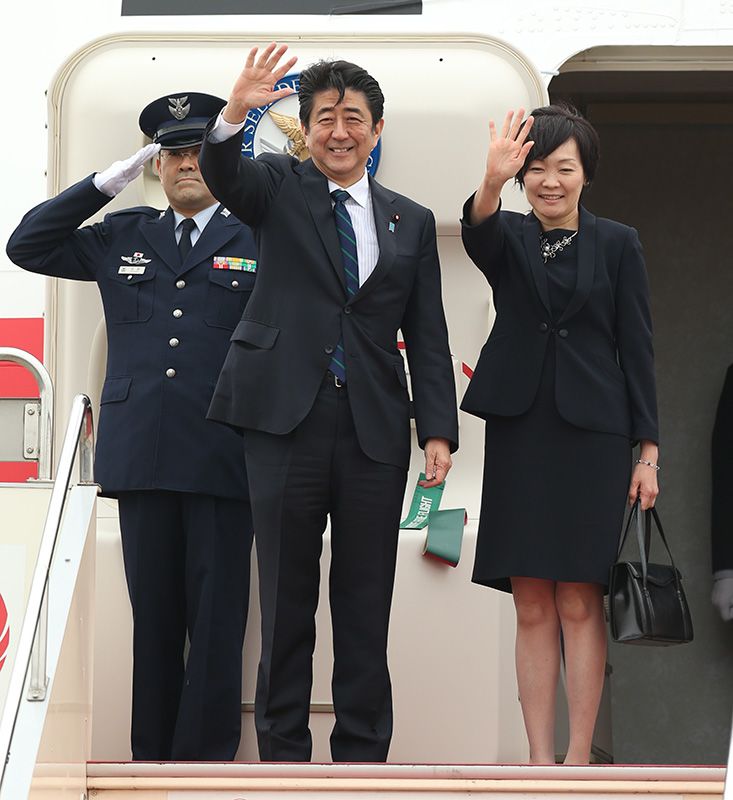Timeline for April 2014
Politics Economy Science Technology Society- English
- 日本語
- 简体字
- 繁體字
- Français
- Español
- العربية
- Русский
1
The Japanese government increases the consumption tax from 5% to 8% in the first hike in 17 years. The rate was set at 3% in 1989 and raised to 5% in 1997. Another rise to 10% is scheduled for October 2015, but Prime Minister Abe Shinzō’s administration will monitor the economic effects of the current increase before making a final decision by the end of 2014.
Around 350 residents return to the Miyakoji district of Tamura, Fukushima Prefecture, after the evacuation order imposed following the accident at Fukushima Daiichi Nuclear Power Station is lifted. Tamura is one of eleven municipalities affected by evacuation orders; Miyakoji is the first area to be reopened.
3
A tsunami caused by an earthquake off the coast of northern Chile reaches Japan’s Pacific coast. The waves are 60 centimeters high in Kuji, Iwate Prefecture, and 30 centimeters high in Hokkaidō and Ibaraki Prefectures.
4
 Tanaka Masahiro pitches in his Major League debut. (© Jiji Press)
Tanaka Masahiro pitches in his Major League debut. (© Jiji Press)
Tanaka Masahiro makes his Major League debut for the New York Yankees against the Toronto Blue Jays. The Yankees win 7–3, and Tanaka’s first Major League victory after signing a $155 million contract is also his hundredth as a professional player.
5
Prime Minister Abe meets with US Defense Secretary Chuck Hagel in Tokyo. Abe describes his plan to strengthen the alliance by enabling Japan to exercise the right to collective self-defense, banned under the government’s current interpretation of the constitution. Hagel says that the United States welcomes “Japan’s efforts to play a more proactive role in the alliance.”
7
Australian Prime Minister Tony Abbott visits Japan and meets with Prime Minister Abe. The leaders reach agreement on a broad outline for economic partnership, including cuts on import tariffs for Australian beef from 38.5% to around 20%. One Japanese aim is to use its concessions as leverage in negotiations on the Trans-Pacific Partnership, a means of refuting claims that it is unwilling to reduce agricultural tariffs.
9
Obokata Haruko holds a press conference to address problems surrounding papers published by the team she led at Riken on STAP (stimulus-triggered acquisition of pluripotency) cells. She objects to the judgment of a Riken committee, announced on April 1, that the images used in the paper had been fabricated or falsified and insists that the team successfully created STAP cells. She also says it would be wrong to retract the papers.
10–11
The G20 Finance Ministers and Central Bank Governors meeting takes place in Washington DC. Attendees agree to maintain support for Ukraine, which is burdened with massive debt. Finance Minister Asō Tarō and Bank of Japan Governor Kuroda Haruhiko discuss Japan’s first consumption tax hike in 17 years and other economic measures.
11
The Abe cabinet approves a new Basic Energy Plan. The plan designates nuclear energy as an important energy source and commits to reactivation of nuclear plants after their safety has been confirmed. This reverses the decision to phase out nuclear power made by the previous Democratic Party of Japan administration.
11–12
The Non-Proliferation and Disarmament Initiative, a coalition of 12 nonnuclear states, holds its eighth foreign ministers’ meeting in Hiroshima—the group’s first meeting in the city. The meeting results in a statement calling for initiatives aimed at abolishing nuclear weapons, including multinational disarmament talks not only between the United States and Russia but also involving China and other nuclear states.
16–18
Representatives of Japan and the United States meet in Washington for ministerial talks concerning the proposed TPP. Although lengthy negotiations are attended by the Japanese minister in charge of TPP issues, Amari Akira, and US Trade Representative Michael Froman, the two sides are unable to bridge their differences on topics including Japanese tariffs on imports of beef and pork.
17
Emperor Akihito and Empress Michiko host a garden party at the Akasaka Imperial Garden in Tokyo. The party is attended by 2,000 guests, including Sochi Winter Olympic heroes Hanyū Yuzuru, who won gold in the men’s figure skating, and Kasai Noriaki, who took silver in the men’s large hill ski jump.
 Emperor Akihito and Empress Michiko chat with figure skater Hanyū Yuzuru and other guests at their annual spring garden party. (© Jiji Press)
Emperor Akihito and Empress Michiko chat with figure skater Hanyū Yuzuru and other guests at their annual spring garden party. (© Jiji Press)
23–25
US President Barack Obama makes a state visit to Japan. At a press conference held jointly with Prime Minister Abe following their meeting on April 24, Obama announces for the first time that the Senkaku Islands are covered by the 1960 Japan-US Security Treaty. He also welcomes and supports proposed reforms to Japan’s pacifist postwar constitution regarding the country’s right to collective self-defense. Differences between the two sides over the TPP, however, delay the expected joint statement on security and economic ties until April 25, when it is announced that both nations recognize the need for “bold measures” if an agreement is to be reached.
 US President Barack Obama boards Air Force One on departure from Haneda Airport following his state visit to Japan. (© Jiji Press)
US President Barack Obama boards Air Force One on departure from Haneda Airport following his state visit to Japan. (© Jiji Press)
24
Transport company Mitsui O.S.K. Lines makes a payment of some ¥4 billion to secure the release of its cargo ship Baosteel Emotion, which had been impounded following an earlier ruling by the Shanghai Maritime Court. The case concerned two ships loaned to the Japanese company by Chinese firm Chung Wei Steamship Co. in 1936, which were lost and consequently not returned after war broke out between Japan and China the following year. The Baosteel Emotion seizure occurred after Mitsui O.S.K. refused to pay compensation for the unreturned vessels sought by the family of the Chinese firm’s owner.
29
 Prime Minister Abe (center) and first lady Akie (right) prepare to depart on their tour of Europe. (© Jiji Press)
Prime Minister Abe (center) and first lady Akie (right) prepare to depart on their tour of Europe. (© Jiji Press)
Prime Minister Abe leaves for a tour of Europe that will take him to Germany, Britain, Portugal, Spain, France, and Belgium. Prior to his departure, he notes his hopes to strengthen ties with Europe, which shares many values with Japan. The itinerary includes summit meetings with the leaders of the six countries visited, as well as Abe’s attendance at the Japan-EU summit, where he aims to make progress in negotiations on a proposed economic partnership agreement with the European Union. The prime minister is scheduled to return to Japan on May 8.
RIKEN consumption tax TPP Fukushima Abe EPA Obama G20 Hiroshima Tanaka Masahiro STAP cell Obokata